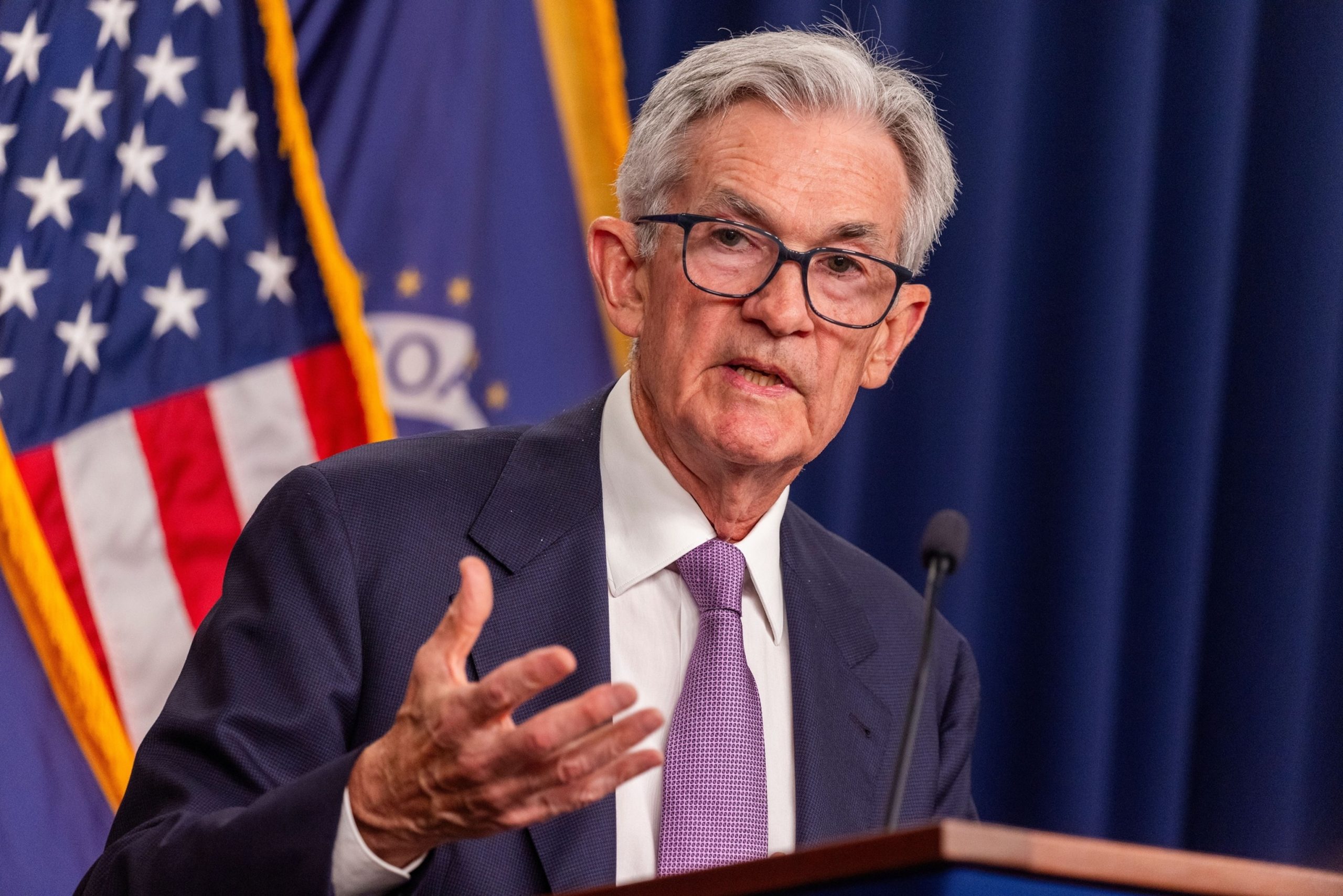
Boeing named a longtime aerospace industry veteran as its next chief executive, who will take over a company that has been rocked by legal, regulatory and production problems.
Robert “Kelly” Ortberg, 64, a former CEO at aerospace supplier Rockwell Collins, will succeed David Calhoun, 67, as CEO effective Aug. 8, the company said on Wednesday.
Boeing announced its new CEO as it reported a loss of more than $1.4 billion on falling revenue during the second quarter. The loss was wider and revenue lower than Wall Street expected, as both Boeing’s commercial-airplanes business and defense unit lost money.
The disappointing results come at a tumultuous time for Boeing. The company agreed to plead guilty to fraud in connection with the Max, two of which crashed, killing 346 people. The Federal Aviation Administration has increased its oversight of the company following mistakes including the blowout of a panel on an Alaska Airlines jet. It is pushing back against whistleblower allegations of manufacturing shortcuts that crimp on safety.
The company is dealing with supply-chain problems that are hindering production, which it hopes to fix in part by re-acquiring Spirit AeroSystems, a key contractor. It is still trying to persuade regulators to approve two new models of the Max and a bigger version of its two-aisle 777 jetliner. And it faces a multi-billion-dollar decision on when to design a new single-aisle plane to replace the Max.
Ortberg will become CEO and president on Aug. 8, Boeing said. He emerged as a leading candidate only recently. Others who were reportedly considered for the job included Patrick Shanahan, a former Boeing executive and now CEO of its most important supplier, Spirit AeroSystems, and another longtime Boeing executive, Stephanie Pope, who recently took over the commercial-airplanes division.
Chairman Steven Mollenkopf said Ortberg was chosen after a “thorough and extensive search process” and “has the right skills and experience to lead Boeing in its next chapter.”
Mollenkopf said Ortberg has earned a reputation for running complex engineering and manufacturing companies.
A Boeing spokesperson said the company had waived the mandatory retirement age of 65 for Ortberg. Boeing did the same for Calhoun days after he turned 64 in 2021.
Boeing, based in Arlington, Virginia, reported a loss of $1.44 billion for the second quarter, compared with a loss of $149 million a year earlier.
Excluding special items, the loss worked out to $2.90 per share. Analysts expected a loss of $1.90 per share, according to a FactSet survey.
Revenue dropped 15%, to $16.87 billion, falling short of Wall Street’s average forecast of $17.35 billion.
The commercial-airplanes division had an operating loss of $715 million and revenue plunged 32% as Boeing delivered fewer passenger jets to airlines — 92 planes, compared with 136 a year earlier.
The FAA has limited Boeing’s production of Max jetliners since shortly after the Alaska Airlines incident, but Boeing hasn’t even hit the FAA limits as it seeks to fix its manufacturing process. The company said Wednesday that it is sticking with its plans to boost production of the Max to 38 per month by year end.
Boeing took a charge of $244 million to cover a fine that it would pay as part of an agreement with the Justice Department to plead guilty to fraud in connection with development of the Max. A federal judge in Texas will soon consider whether to approve the deal, which is opposed by many families of those who died in the two Max crashes.
Boeing’s defense and space unit lost $913 million because of $1 billion in setbacks to four fixed-price government contracts, including a deal to build two new Air Force One presidential jets. The smaller services business earned $870 million.
Boeing shares added 2% in premarket trading.
Boeing, one of the world’s leading aerospace companies, recently announced the appointment of a new CEO, David Calhoun, as well as reported a staggering loss of over $1.4 billion in the second quarter of 2020. These developments come at a critical time for the company, as it continues to grapple with the fallout from the ongoing COVID-19 pandemic and the grounding of its 737 Max aircraft.
David Calhoun, who has been serving as Boeing’s chairman since October 2019, will officially take over as CEO on January 13, 2020. Calhoun brings with him a wealth of experience in the aerospace industry, having previously held leadership positions at General Electric and Blackstone Group. His appointment comes after former CEO Dennis Muilenburg was ousted in December following a series of setbacks, including the grounding of the 737 Max fleet after two fatal crashes.
In addition to the leadership change, Boeing also reported a significant financial loss in the second quarter of 2020. The company posted a net loss of $2.4 billion, with a staggering $1.4 billion attributed to its commercial airplane division. This marks a sharp contrast to the same period last year when Boeing reported a profit of $2.9 billion.
The losses can be largely attributed to the continued grounding of the 737 Max aircraft, which has been in effect since March 2019. The grounding has not only resulted in a halt in production and delivery of new planes but has also led to significant costs associated with compensating airlines and addressing regulatory concerns.
The COVID-19 pandemic has further exacerbated Boeing’s challenges, as airlines around the world have been forced to cancel flights and reduce their fleets due to travel restrictions and decreased demand. This has had a ripple effect on Boeing’s business, as airlines have been forced to defer or cancel orders for new aircraft.
Despite these challenges, Boeing remains optimistic about its future prospects. The company has taken steps to streamline its operations and reduce costs, including cutting thousands of jobs and consolidating its production facilities. Additionally, Boeing is working closely with regulators to address the issues surrounding the 737 Max and is hopeful that the aircraft will be cleared to fly again soon.
In conclusion, Boeing’s appointment of a new CEO and its recent financial losses underscore the challenges facing the company in the wake of the 737 Max crisis and the COVID-19 pandemic. However, with strong leadership and a commitment to addressing its issues head-on, Boeing remains well-positioned to weather the storm and emerge stronger in the long run.


